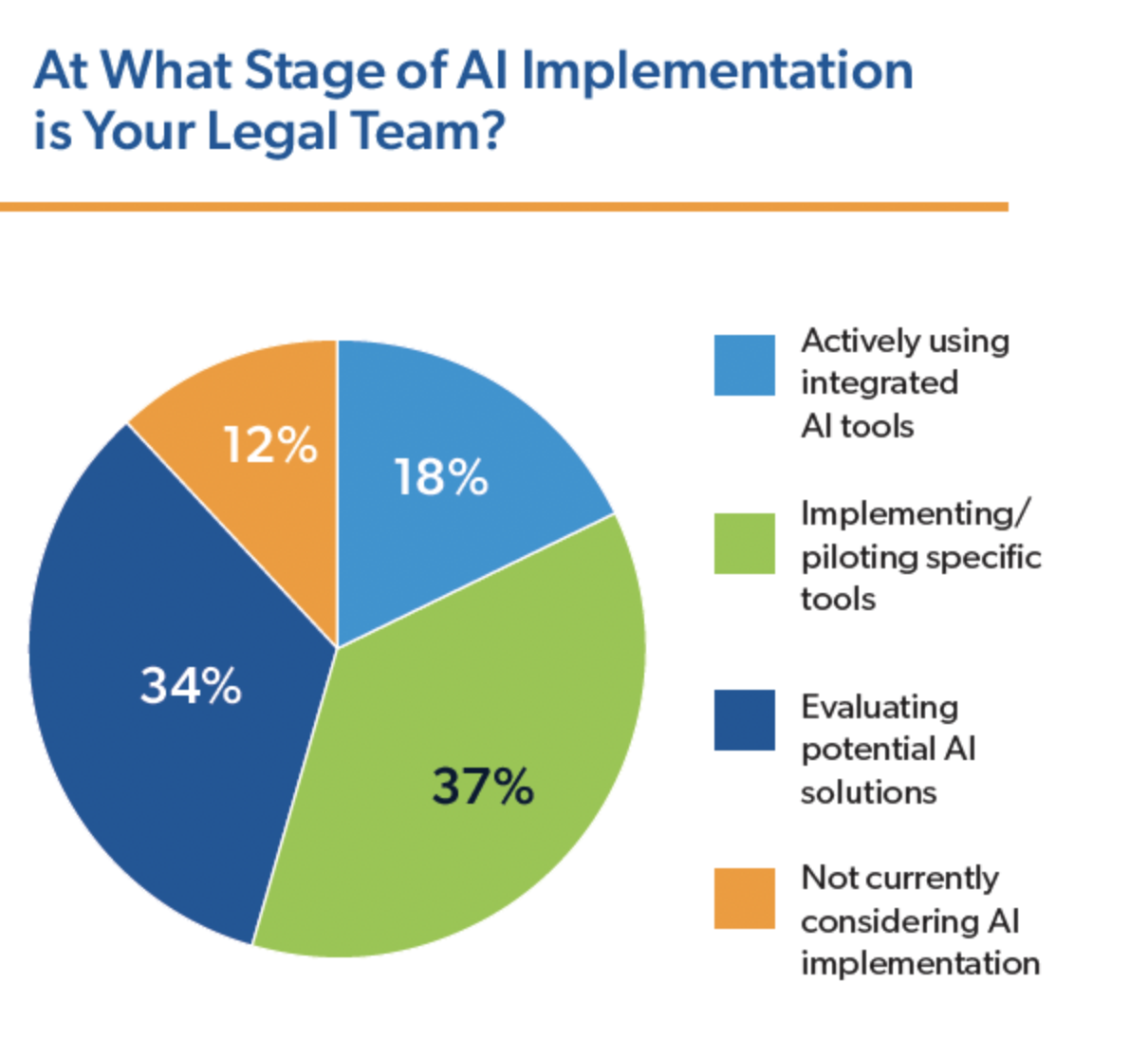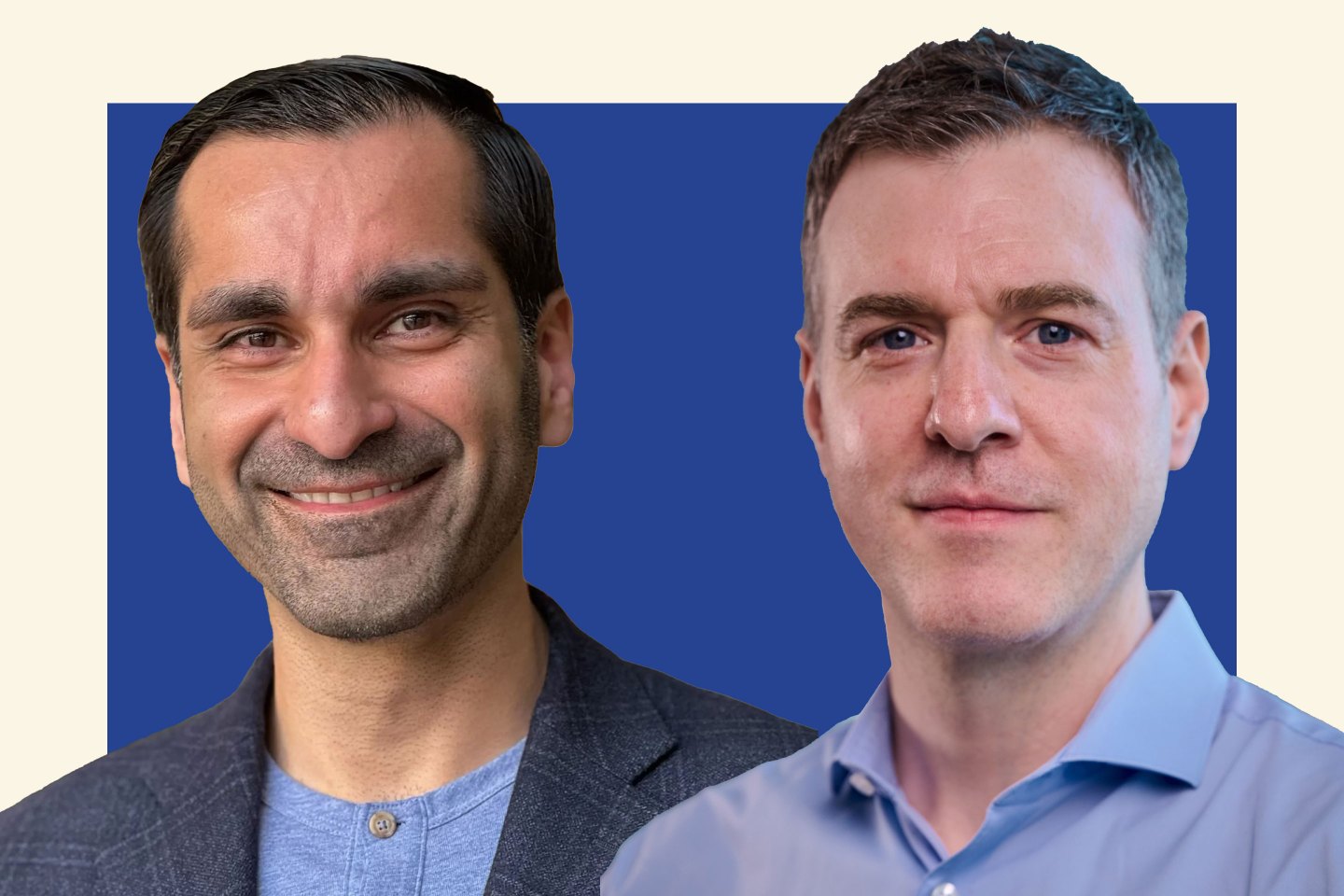At Citigroup an “AI accelerator” is not a piece of hardware, it’s a person. Citi’s accelerators—a diverse cohort of employees from all parts of the company—are familiar and enthusiastic about using AI tools, and play a key role in helping the bank adopt the technology across the organization.
On Wednesday, Citi gave a glimpse of this process in action as Chief Technology Officer David Griffiths announced that the company was expanding the use of several generative AI tools for its workforce to a total of 11 countries, up from eight countries at the end of 2024.
The AI tools, which include a virtual assistant and a coding assistant, are getting some important improvements that Griffiths says were derived from the accelerators’ feedback and from analyzing real world data from all the workers using the technology in the initial regions.
“That’s very much been our strategy: Get the tools out at scale so that as they advance, you maximize the benefit and the impact,” says Griffiths. Thus far, he says Citi has focused on markets that have the most stable regulatory environments, including the U.S., U.K., India, Canada, Costa Rica, and Poland.
Citi has a physical presence in close to 90 countries globally and while Griffiths says that he can’t be certain generative AI will be unveiled in all regions, he expects a “large majority” of the bank’s 230,000 global workforce will have access to these tools in the coming months.
Last year, the bank launched Citi Assist, a virtual assistant that can help answer policy and procedural questions, and an AI tool called Citi Stylus, which summarizes documents, performs translation, and can compare multiple documents at once. The new version of Citi Stylus, which rolled out to around 10,000 early adopter Citi employees last week, allows them to ask more detailed follow up questions and edit and store the outputs from the large language models.
“It’s broader, it’s more interactive, and the outputs that it generates are more immediately consumable than before,” says Griffiths, who shared the fresh product updates at a session held Wednesday at a Google Cloud conference held in Las Vegas.
Citi also debuted an AI coding tool for developers, called Citi Squad, in 2024 and made it available to about 9,000 employees. Assist and Stylus have been rolled out to 150,000.
The improvements made to Stylus reflect Citi’s data-driven approach of actively tracking how employees were using the tool, as well as employee feedback that can be shared directly within the tool and, of course, the insights provided by Citi’s AI accelerators.
Citi’s generative AI efforts lean on a close partnership with Google, including a multiyear partnership announced last year to move parts of the bank’s financial infrastructure to Google Cloud. Through that partnership, Citi has access to Vertex AI, a singular AI platform used to build AI applications like Assist and Squad and allowing the bank to train and manage LLMs, including Google’s proprietary Gemini.
“We can all hypothesize when new technologies come out where we think value will be, but the fastest way to ensure that it’s credible is to get a feedback-driven system in place as quickly as possible,” says Rohit Bhat, managing director for financial services at Google Cloud. “Not just with the operators, not just with the developers, but with the end users.”
Citi’s Griffiths says there’s so much innovation in the market that he wanted the optionality of a multi-modal strategy from a variety of AI hyperscalers, though his strong preference is for closed-source, which restricts access to the source code.
Beyond bolstering employee excitement about generative AI, Griffiths is also working to integrate the tools more seamlessly in workflows. Citi Stylus and Citi Assist were both built as standalone, separate applications, but that’s changing too. There is now a web plugin for Citi Stylus so that employees can summarize and create Q&A’s when browsing the internet, as long as the page isn’t paywalled. Citi Assist is being added to the various chat apps that Citi employees are already using from vendors.
Griffiths is tracking AI progress by how much “capacity” Citi is creating, which he explains is a usage-based metric. When Citi launches a tool, it looks at if a human did the work 100 times, and it costs “X,” and for AI it costs “Y,” Citi can then calculate the potential financial gains that can be accrued by launching these productivity tools.
Griffiths is also developing multi-step agentic workflows that could, in one example, take a summary, translate it, and create presentation slides. The technology isn’t reliable enough yet for prime time, but he says the large language models’ reasoning capabilities are getting better. “The agentic model is becoming much more viable,” says Griffiths, who expects the most significant gains will be with developers.
Citi, which spends about $12 billion annually on technology, says its generative AI rollout has prioritized tools that can be launched horizontally across all parts of the business, including wealth management and front-office banking. But a parallel path has emerged where Citi will also develop job-specific AI tools that can be tailored differently for developers, customer service, sales and marketing, and more.
“We need a set of targeted solutions, but ultimately the end result is the same,” says Griffiths. “There are things that people are doing today that they will be much more efficient at doing in the future.”
John Kell
Send thoughts or suggestions to CIO Intelligence here.
NEWS PACKETS
Trump’s tariffs may make AI more expensive. With the U.S. beginning to collect 10% tariffs on imports from many countries kicking off this weekend, much has been made about the impact consumers will see for the clothes, tech gadgets, cars, and coffee they purchase. But as reports in Fortune and the Wall Street Journal make clear, even the cost of the infrastructure necessary to deliver AI may become more expensive too. Already, nearly a trillion dollars has been committed to build data centers that can handle the physical computing needed to fuel AI services but costs associated with goods like steel and electrical transformers could increase over time if the tariffs stay in effect for a while. If cloud companies have to spend more on construction, those additional costs may get passed onto those using AI.
Meta debuts new AI model, DeepSeek explores new method. Over the weekend, Meta debuted the first models from the tech giant’s open-source AI software Llama 4, intended to power AI agents that can comb the web and handle tasks that could be useful to both consumers and businesses, CNBC reports. Meanwhile, Bloomberg says the Chinese AI startup DeepSeek is working with researchers from Beijing-based Tsinghua University on a newer method known as reinforcement learning, which incentivizes AI models to refine their decision-making process by offering rewards for more accurate responses. The new models, called DeepSeek-GRM (short for “generalist reward modeling”) are expected to be released as open source.
Kohl’s top tech leader departs. Siobhán Mc Feeney, the chief technology and digital officer at Kohl’s, has departed the company after nearly three years in the role, a change that comes less than six months after the retailer tapped the former CEO of craft retailer Michaels to propel a turnaround. Kohl’s recently cut its dividend and projected a larger-than-expected sales decline for fiscal 2025 due to a slowdown in household spending and the joint disclosures sent shares sharply lower when announced in March. Kohl’s is planning a comprehensive search to fill the role Mc Feeney left vacant and new CEO Ashley Buchanan will likely look for someone to help introduce new ways to leverage tech and e-commerce to boost sales, similar to his successful playbook at Michaels.
ADOPTION CURVE
An inaugural AI survey from the legal recruiting firm Major, Lindsey & Africa (MLA) found that 88% of legal teams are actively integrating, piloting, or evaluating AI tools. A third of them remain stuck at the evaluation stage and Pamela Salling, a managing director with the in-house counsel recruiting team at MLA, tells Fortune that lawyers are naturally a more cautious department. “But it does tell me that even the skeptics are doing their diligence,” says Salling. “And they are looking into how they can evaluate the right tool for their team.”
MLA also says that 21% of legal department leaders require AI experience for hiring and are investing in upskilling for their current workforce through internal training programs (49%), vendor-provided training (34%), and learning and development stipends (20%). Around one out of every four firms say they have no formal AI development program, the survey of 152 legal departments across 17 countries shows.

JOBS RADAR
Hiring:
- Sweet James is seeking a CTO, based in Newport Beach, California. Posted salary range: $220K-$275K/year.
- VF Corporation is seeking a VP of data intelligence, based in Greensboro, North Carolina. Posted salary range: $240K-$300K/year.
- Verkada is seeking a field CTO, based in San Mateo, California. Posted salary range: $255K-$315K/year.
- Harvard University is seeking a CIO, based in Cambridge, Massachusetts. Posted salary range: $121.2K-$215.6K/year.
Hired:
- The Campbell’s Company (No. 419 on the Fortune 500) named Aaron Gwinner as SVP and chief digital and technology officer, effective April 14. Gwinner will oversee the overall strategy and execution of the food giant’s digital and IT function. Gwinner joins Campbell’s from tobacco manufacturer Reynolds American, where he was SVP and CIO since 2019. Before that, he spent 26 years in various leadership roles at Coca-Cola.
- Genworth Financial (No. 477 on the Fortune 500) appointed Morris Taylor as SVP and CIO, effective April 7 and reporting to President and CEO Tom McInerney. Taylor joins the life insurance and financial services company from insurer Markel, where he also served as CIO. Prior to Markel, Taylor spent 25 years at financial services company Capital One.
Every Friday morning, the weekly Fortune 500 Power Moves column tracks Fortune 500 company C-suite shifts—see the most recent edition.
- UKG announced the appointment of Prakash Kota as CIO, reporting to President and Chief Financial Officer Arlen Shenkman. Kota joins the HR and workforce management software provider after most recently serving as CIO at design and engineering software provider Autodesk, where he worked for 20 years.
- Alchemer appointed Ramesh Kandukuri as CTO, effective immediately, joining the online survey software provider after most recently serving as CTO of software-as-a-service payment solutions provider InvoiceCloud. Kandukuri also led the engineering and technology organizations at Progressive Leasing and Quicken Loans.
- PeaceHealth named Julie Eastman to serve as SVP and CIO, joining the Vancouver, Washington-based not-for-profit health care system. Prior to that, Eastman served as CIO for UCI Health in California. Eastman also served as the executive director of information services at Children’s Hospital of Orange County and as the VP of information services at MemorialCare Health System, both in California.
- Telix Pharmaceuticals announced the appointment of Paul Schaffer to the newly created role of CTO, effective immediately, where he will propel the use of technology to advance the company’s radiopharmaceutical R&D. Schaffer previously served as CTO at radioisotope production technology firm ARTMS, which Telix acquired last year.
- Pivot Bio appointed Travis Frey as the agtech company’s CTO, assuming the role following the retirement of Ernie Sanders. Frey will lead Pivot Bio’s R&D, innovation, and science teams and will report to CEO Chris Abbott. Most recently, Frey served as CTO of online mental health company Mindful Care and as CTO at biotech company Calyxt, which merged with peer Cibus in 2023.
- Packsize named Troy Rydman as CIO and chief information security officer, joining the packaging and containers manufacturer to oversee IT, information security, and security operations. Most recently, Rydman served as a senior practice manager at Amazon Web Services, where he built a cybersecurity consulting practice for Fortune 50 companies.












